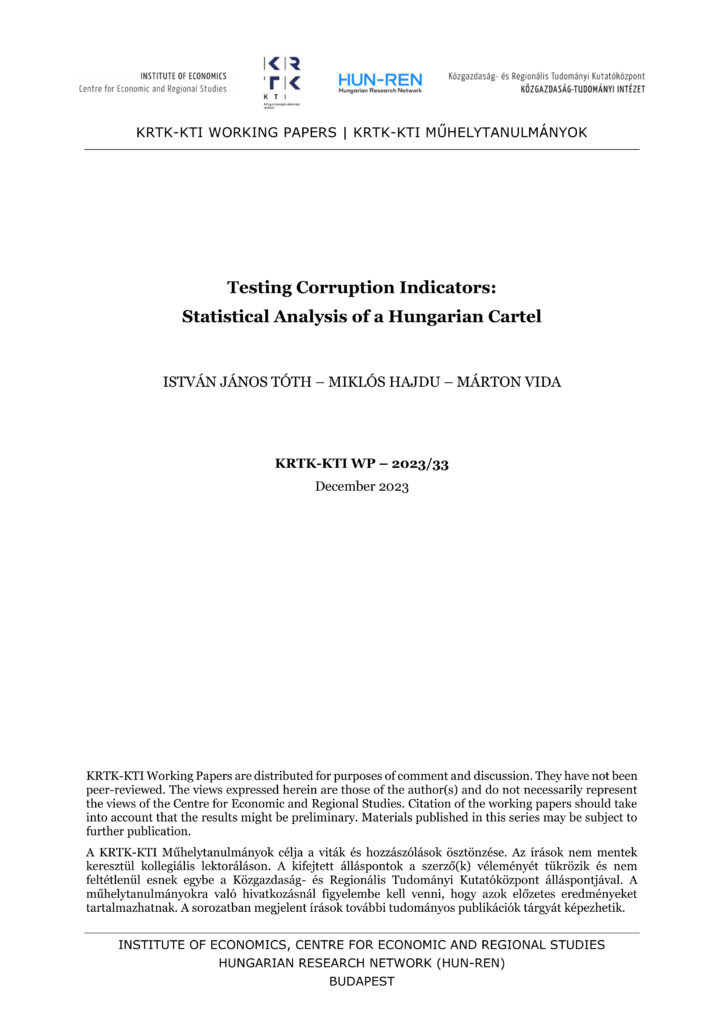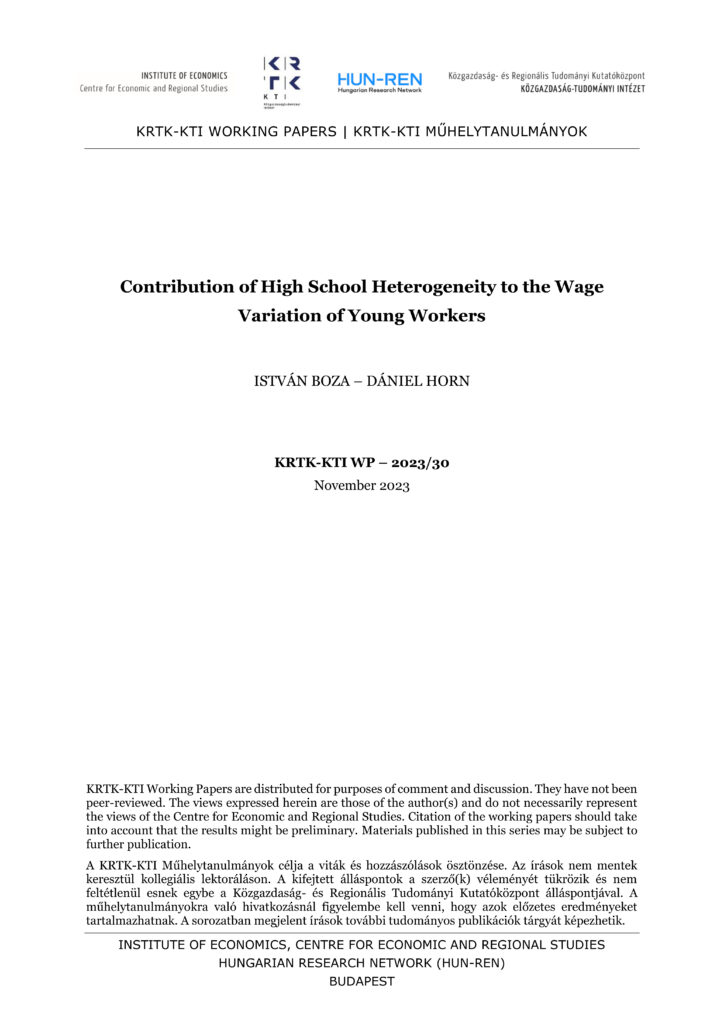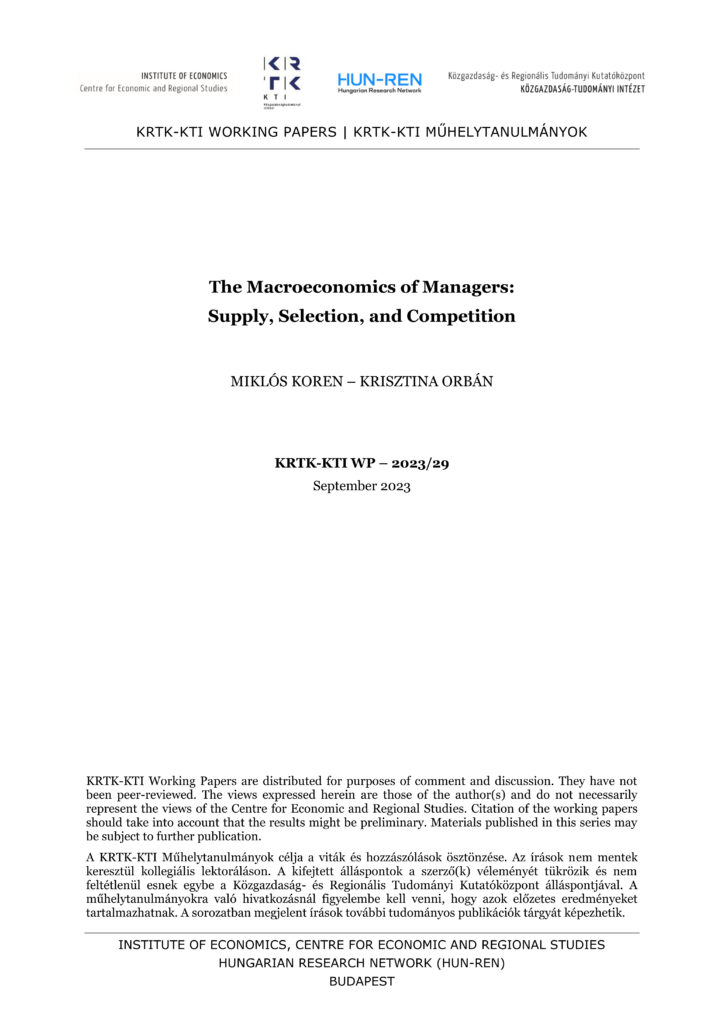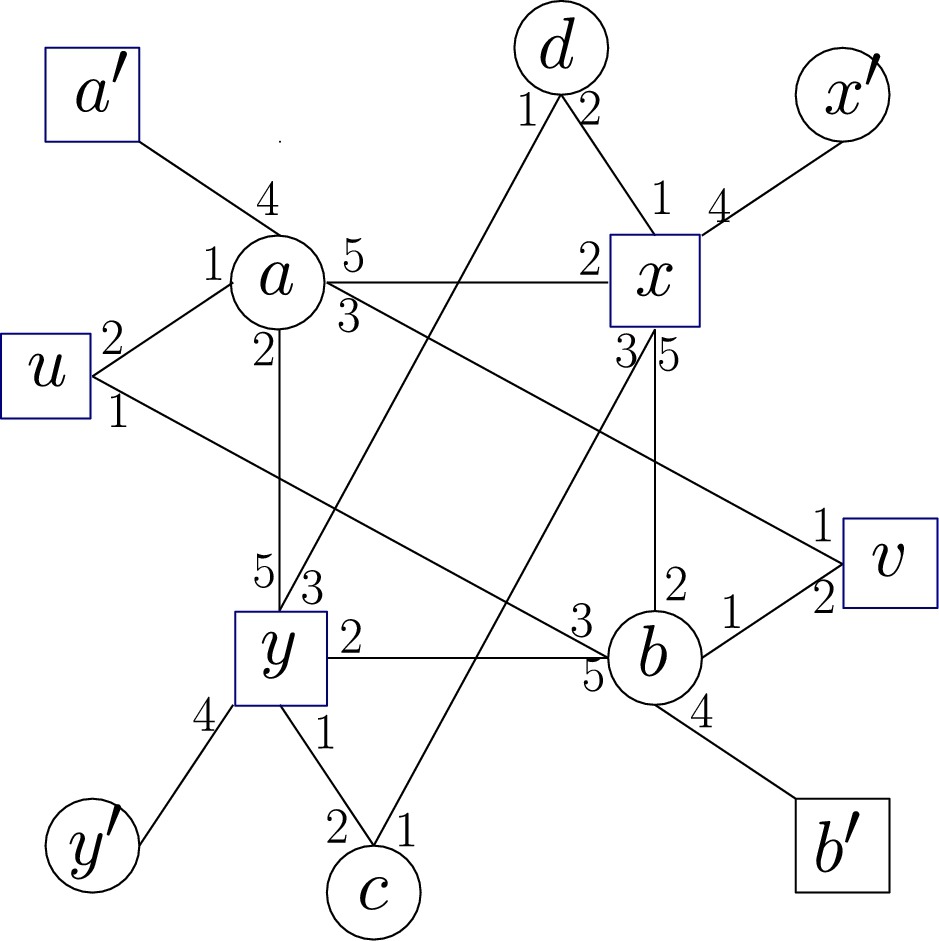Testing Corruption Indicators: Statistical Analysis of a Hungarian Cartel

The study analyzes the reliability of corruption risk indicators using Hungarian public procurement data, specifically focusing on EU-funded contracts associated with a cartel case revealed by the Hungarian Competition Authority (HCA) in 2016. The investigation aims to determine whether corruption risk indicators for public procurement contracts related to the identified cartel case (214 contracts) are […]
The effect of temperature on birth rates in Europe

Using data from 32 European countries for nearly 244 million live births between 1969 and 2021, this paper examines the effects of temperatures on birth rates. The results show that exposure to hot days slightly reduces birth rates five to eight months later, while much stronger negative effects are observed nine to ten months after […]
The Aftermaths of Lowering the School Leaving Age – Effects on Roma Youth

In 2013, the Hungarian government cut the school leaving age from 18 to 16. We study the impact of this unique reform on the country’s sizeable Roma minority using census data on the universe of 17-year-olds in 2011 and a 10 percent random sample in 2016. School attendance fell by more than 20 percentage points […]
Contribution of High School Heterogeneity to the Wage Variation of Young Workers

The aim of this paper is to quantify how much of the initial wage differentials of young workers is explained by the secondary school they attended, and to disentangle the (descriptive) channels contributing to these differences. The analysis is based on the HUN-REN CERS Admin3 database, taking advantage of the fact that for some cohorts, […]
The Macroeconomics of Managers: Supply, Selection, and Competition

Good management practices are important determinants of firm success. It is unclear, however, to what extent pro-management policies can shape aggregate outcomes. We use data on corporations and their top managers in Hungary during and after its post-communist transition to document a number of salient patterns. First, the number of managers is low under communism […]





